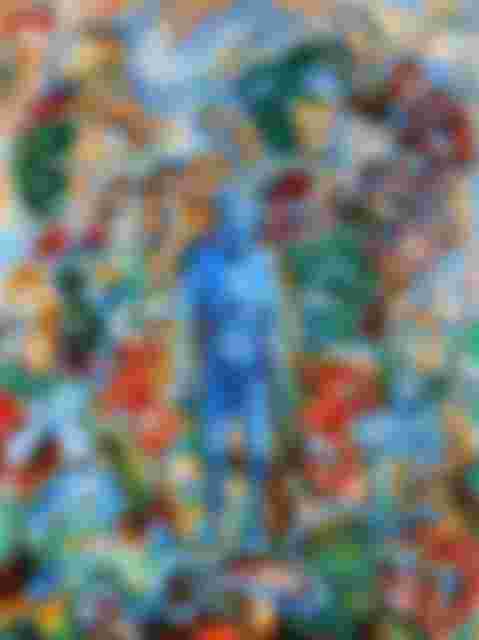Hallucinations are psychological phenomena that, due to their singularity and relatively low prevalence, arouse great interest. They occur in different health conditions and have very diverse manifestations, so in this article we will go into the different types of existing hallucinations. Hallucinations have been commonly confused with illusions when, in fact, their differences are clear. In the case of an illusion, there is an external stimulus, but it is perceived erroneously. This would be the case when we wake up in the middle of the night and when we look at the bedroom chair full of clothes, we think we see the silhouette of a person. Another big difference is that illusions, when they pass through the filter of reason, fade quickly.

There are several ways to classify hallucinations: according to their complexity, their cause, their mode of appearance. In this case, we are going to focus on the type of hallucinations that exist according to the sensory modality in which they occur. In this sense, in visual hallucinations, the individual perceives through sight something that is not really there. They can be simple, such as flashes of light, or complex. The latter are much more elaborate and the person may even see complete scenes that include moving figures in full color. They are the type of hallucination that occurs in moments of transition between wakefulness and sleep. They are also typical of altered states due to substance abuse and usually appear during alcohol withdrawal syndrome.
On the other hand, the auditory ones are the most frequent and the most common in cases of schizophrenia. As in the previous case, the person may hear only elementary sounds or complete conversations. The content of these conversations is usually threatening or imperative. The individual may hear orders being given, being berated, or even several voices talking over him or her. Hallucinations are often associated with psychological disorders. Although it is true that many mental conditions, such as schizophrenia, bipolar disorder or dementia, are accompanied by this phenomenon, this is not the only cause. They can also be caused by substance abuse or withdrawal, as well as in cases of brain injury or brain tumor.
In some cases, when the hallucination is a transitory perception, the person is aware that it is not real. However, in the most severe cases of mental disorders, there is a dissociation and he/she has many difficulties to distinguish what is true from what is only a fantasy or an image created by his/her mind. In these severe cases, the person's life can be completely altered and limited. Within the whole range of problems affecting mental health, those with hallucinations as a symptom are perhaps the most stigmatized. Under simplifications such as 'hearing voices', many people understand this phenomenon as an unequivocal sign of 'being crazy' or of posing a danger to oneself or to others. The reality, however, is much more complex. Not only is it common to confuse hallucinations and other similar symptoms, but they can take many more forms and are much more frequent.
In conclusion, a simpler explanation refers to hallucinations originated by the very functioning of our perceptual system. Thus it must be understood that the perceived sensation is a construction of the brain from the input physical stimulus. Therefore, sometimes the brain constructs erroneous sensations when it should do nothing. For example, some people who have a defect in the retina, due to disease or accident, begin to see objects within that physically blind area called scotoma. This is because there is no signal from the retina and the brain is faced with the dilemma of either erasing the damaged visual area or beginning to fill it in unpredictably. Another example of hallucination occurs in the case of amputated limbs in which the patient begins to experience phantom limbs: he continues to feel them even though he no longer has them. This is for the same reason as the scotoma: the brain is faced with the dilemma of functionally "amputating" the area of the brain responsible for the amputated limb or filling it in unpredictably.
Have you suffered hallucinations?
Disclaimer: I would like to let you know that English is not my mother tongue, I may even make some mistakes in the elaboration of sentences in my posts. Feel free to correct me attentively. It will help me in my learning process.
I especially want to thank my loyal sponsors for their unconditional support. I truly wish them the best this world can give them. I would also like to invite my readers to stop by and review your content, it is very interesting and valuable.
My most recent articles:
Assertiveness in your relationship.
It is difficult for us to live in the present.
Blood pressure in hot weather.
Be more competent in what you do.
You can follow me on:
Facebook - Instagram - Youtube - twitter
My Blogs:

What's the main difference of hallucinations and illusions? And do you think that hallucinations can occur if a person is stress or let say if the person intake high dosage of medicines?